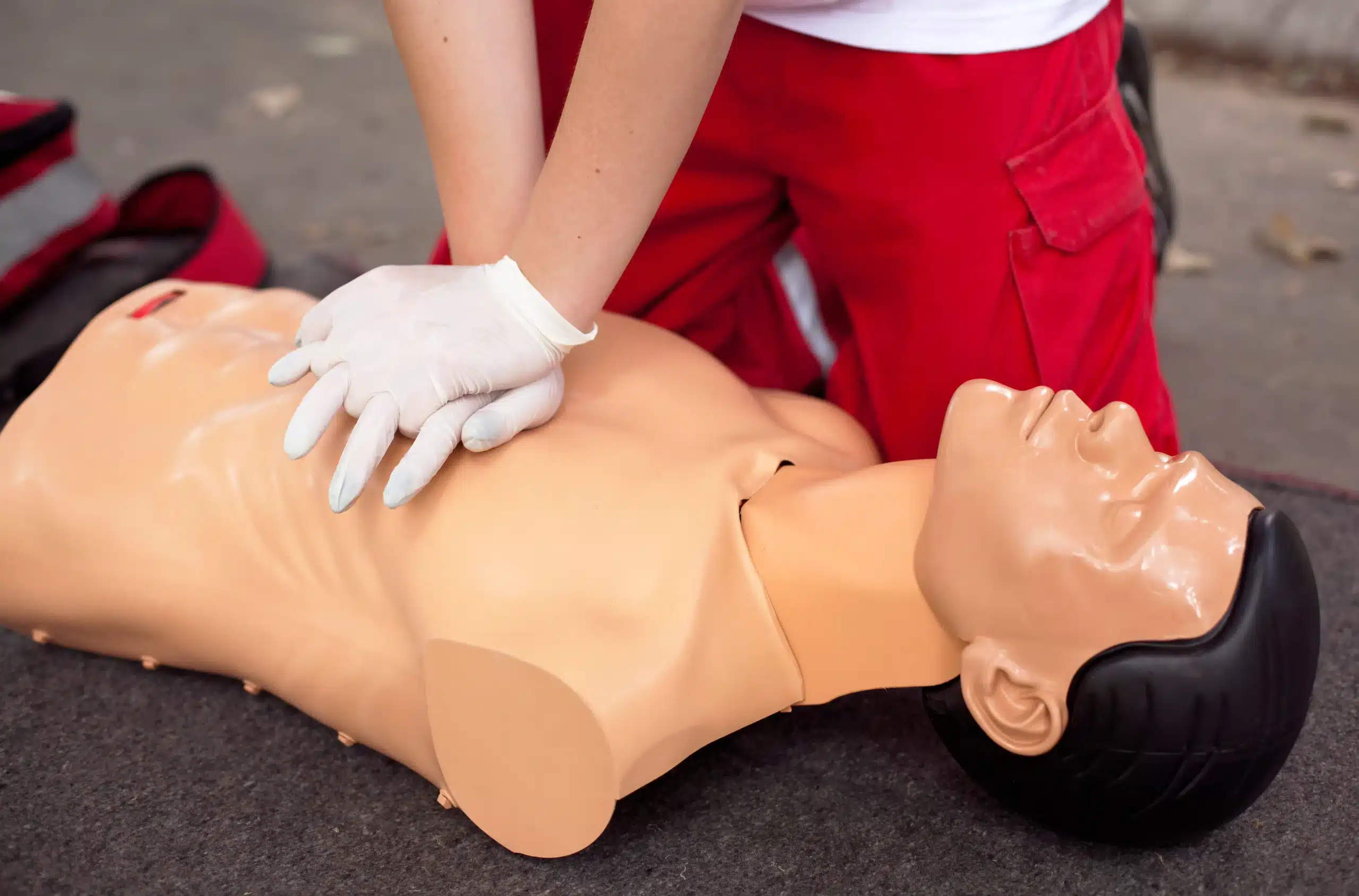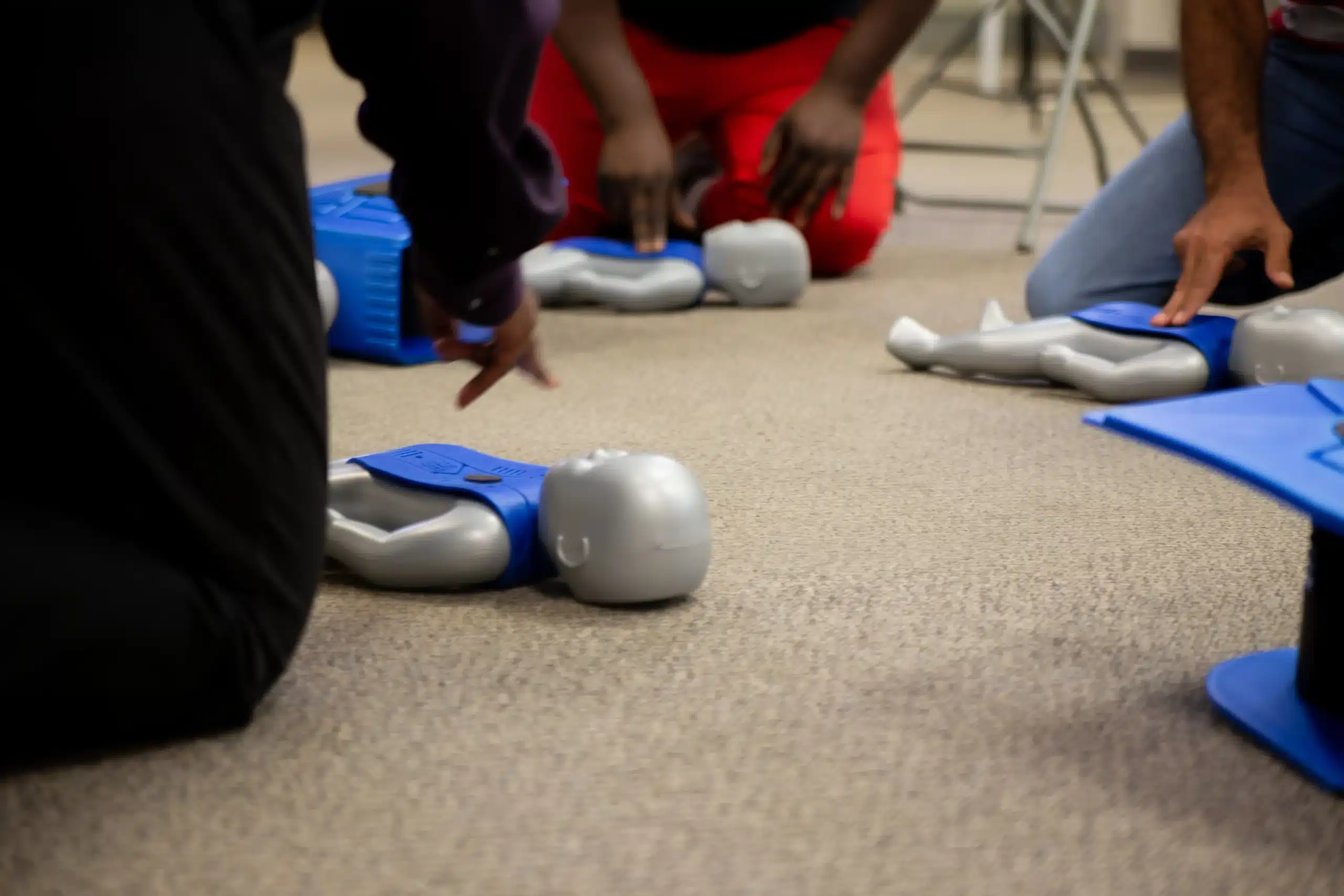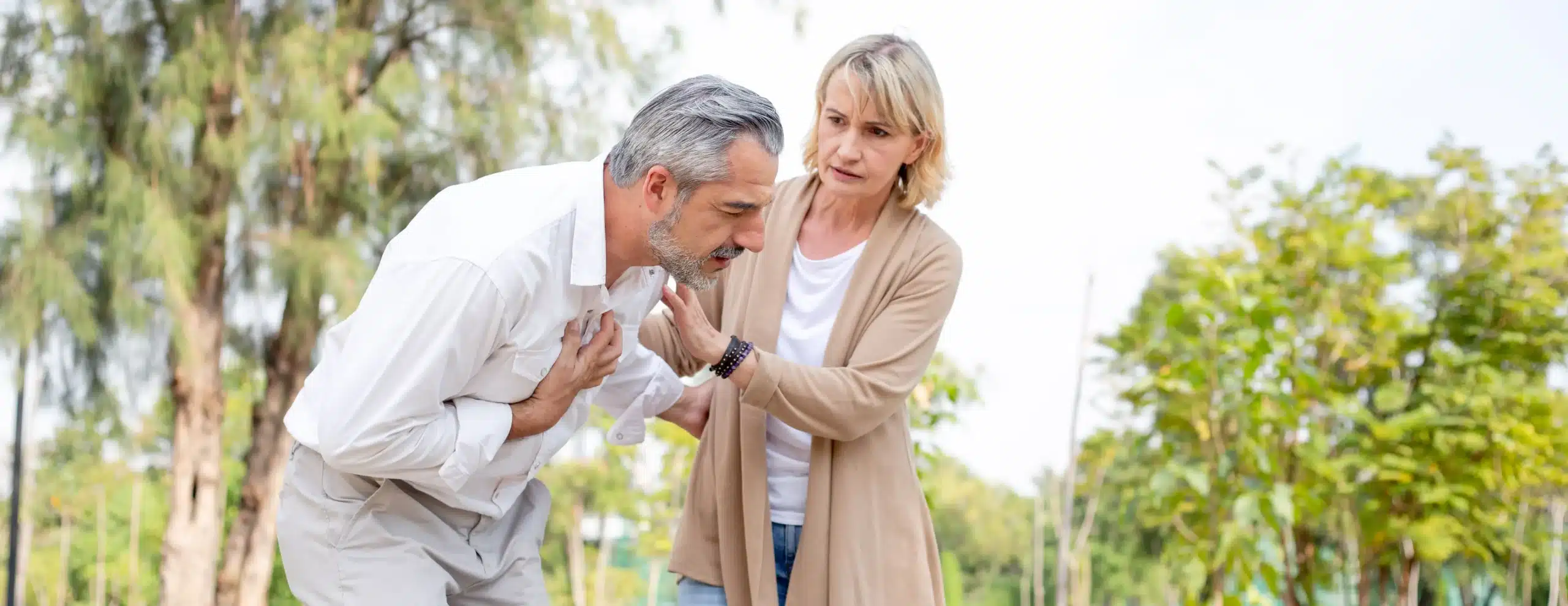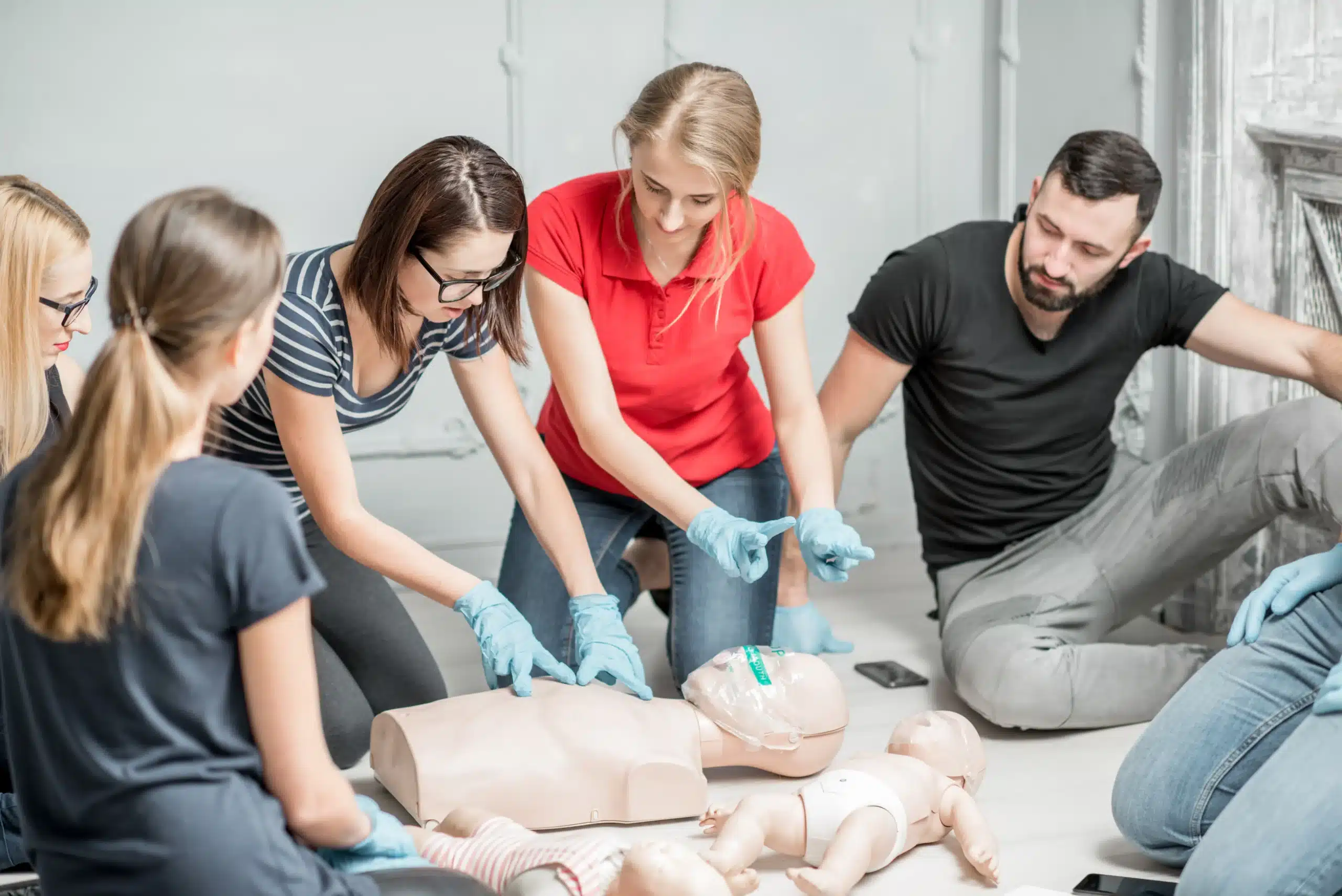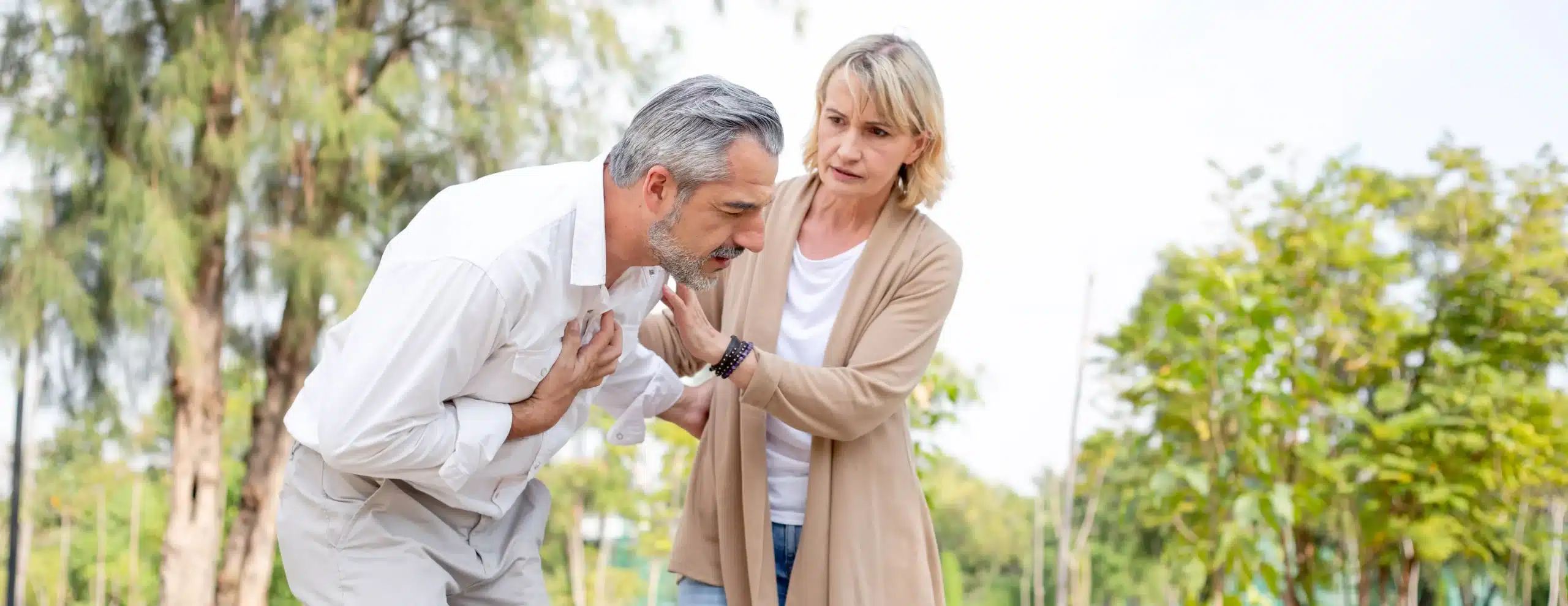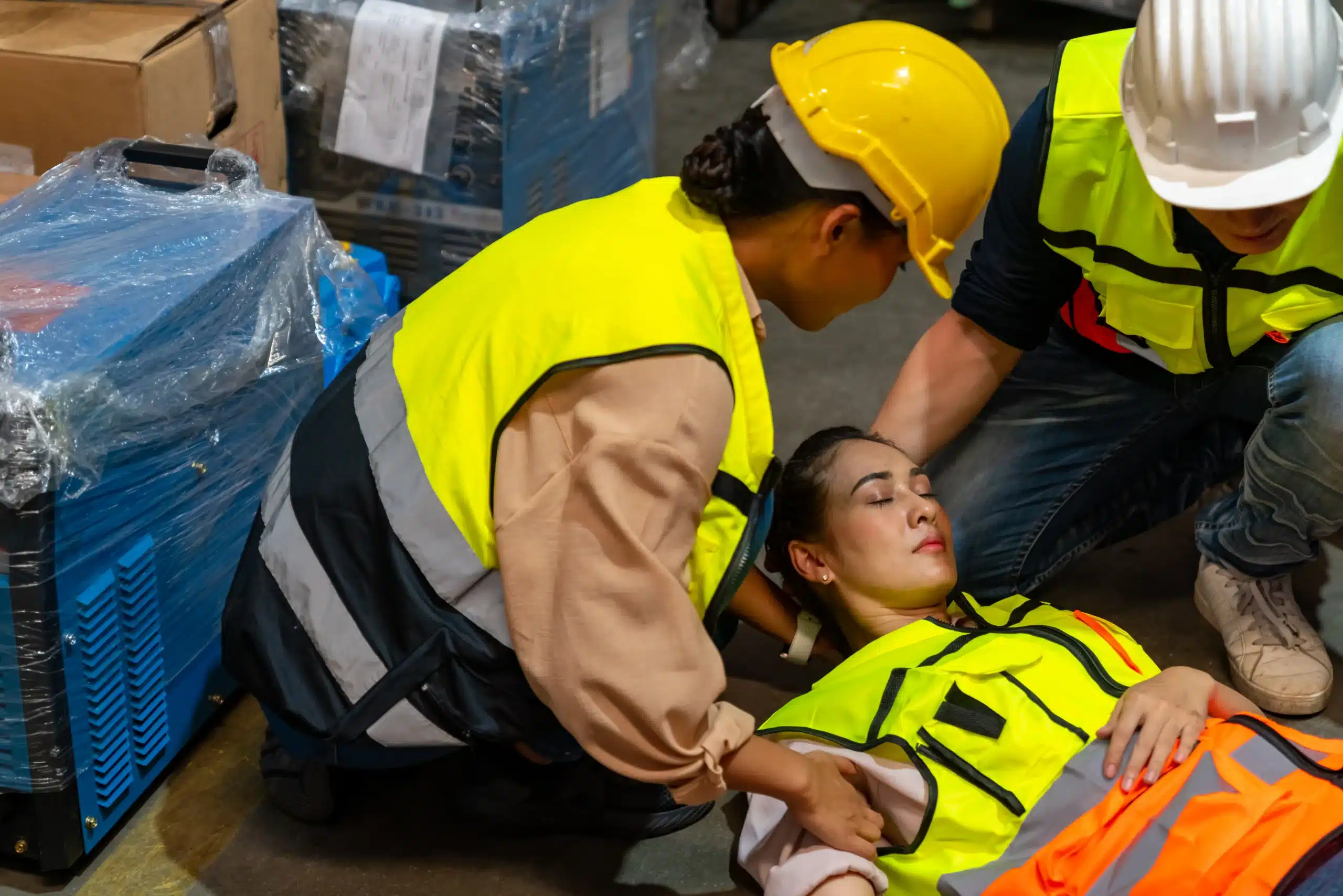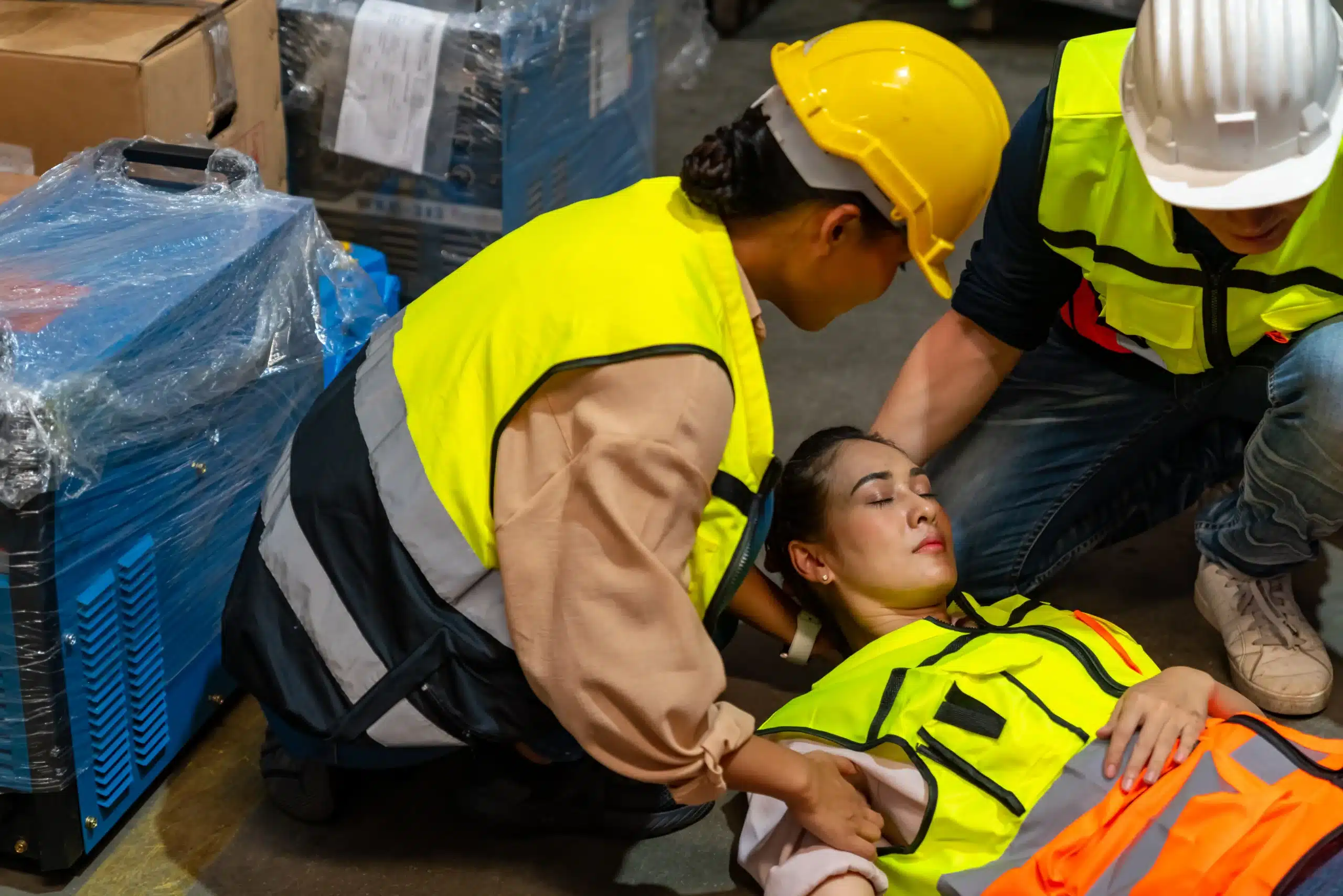Life is unpredictable, but you can prepare yourself for emergencies. Online CPR classes in Alameda offer a flexible and accessible way to learn this vital skill. This article serves as your comprehensive guide to online CPR training in Alameda. We’ll cover everything from the basics of online learning to the different types of CPR certifications available. You’ll also learn how to choose a reputable provider, understand the costs involved, and prepare for your online CPR classes in Alameda. We’ll also address common misconceptions and highlight the benefits of this increasingly popular learning format.
Key Takeaways
- Online CPR training combines online convenience with crucial hands-on skills sessions. This blended approach lets you learn at your own pace and demonstrate proficiency to a certified instructor.
- Different CPR certifications cater to various needs. Whether you’re a healthcare professional requiring BLS or a parent wanting a CPR/First Aid combo, research the right certification for you.
- A reputable provider is essential for a quality online CPR experience. Look for AHA-accredited courses, clear in-person skills session details, and flexible scheduling options to fit your needs.
What are Online CPR Classes in Alameda?
Online CPR classes in Alameda offer a flexible way to learn the essentials of cardiopulmonary resuscitation and other lifesaving skills. These courses blend online learning with in-person skills sessions, allowing you to study the material at your own pace and then demonstrate your proficiency to a certified instructor. This blended learning approach combines the convenience of online education with the crucial hands-on practice needed for real-world emergencies. You can learn more about online CPR classes in our Online CPR Classes in Berkeley guide.
Online CPR training typically begins with digital modules covering topics like chest compressions, rescue breaths, and recognizing the signs of a cardiac arrest. You’ll also learn about using an automated external defibrillator (AED) and providing first aid for choking and other common medical emergencies. Alameda CPR Classes offers a combined CPR and First Aid certification course that follows this format. While the online portion provides foundational knowledge, a hands-on skills assessment with an instructor is essential to receive a valid CPR certification and meet most employer requirements. For in-person training options, check out CPR classes in Alameda.
Top Online CPR Class Providers in Alameda
Finding the right CPR certification course can feel overwhelming with so many options. To simplify your search, we’ve compiled a list of reputable providers offering online CPR classes in Alameda. Remember, while online courses offer convenient, self-paced learning, a hands-on skills assessment with a certified instructor is usually required for valid certification, accepted by most employers.
Berkeley CPR Classes
Berkeley CPR Classes offers a range of American Heart Association certification courses, including online components combined with in-person skills sessions. They provide BLS, ACLS, PALS, and First Aid training. Berkeley CPR Classes prioritizes customer service and offers a low price guarantee, making them a budget-friendly option. Group discounts are also available.
Safety Training Seminars
Safety Training Seminars provides various certifications, including CPR, BLS, ACLS, PALS, and First Aid. As an American Heart Association (AHA) Training Center, their certifications are valid for two years. With classes held daily in Alameda, scheduling an in-person skills check after completing your online coursework is easy. Learn more on their website.
CPR Education
CPR Education offers CPR and First Aid certification classes in Alameda, meeting American Heart Association (AHA) and American Red Cross standards. They offer flexible scheduling, including convenient on-site training for groups or businesses. Visit their website for course details and schedules.
American Red Cross
The American Red Cross is a well-known provider of CPR and First Aid training, with various options, including online courses combined with in-person skills sessions. CPR certifications are typically valid for two years. The Red Cross also offers refresher courses and resources to help maintain your skills. Find a CPR class near you.
Online CPR Course Types and Certifications
This section covers the various online CPR certifications available in Alameda, including BLS, ACLS, PALS, and First Aid/CPR combination courses. Understanding the differences between these certifications will help you choose the right course.
Basic Life Support (BLS)
BLS certification focuses on providing immediate care for life-threatening emergencies. This includes CPR for adults, children, and infants, using an AED, and relieving choking. This BLS certification is crucial for healthcare providers, first responders, and anyone working in healthcare. It emphasizes single-rescuer and team basic life support skills. Many providers, including Safety Training Seminars, offer AHA-approved BLS training with classes available daily.
Advanced Cardiovascular Life Support (ACLS)
ACLS certification builds upon BLS, focusing on advanced techniques for managing cardiovascular and respiratory emergencies. This course covers airway management, intravenous access, and pharmacology. ACLS training is essential for healthcare professionals who manage or participate in the management of cardiopulmonary arrest or other cardiovascular emergencies. The emphasis is on teamwork and effective communication during critical situations. Bay Area CPR highlights the accessibility of their ACLS program, explaining complex medical procedures clearly.
Pediatric Advanced Life Support (PALS)
PALS certification equips healthcare providers with the skills to respond to emergencies involving infants and children. This course covers pediatric assessment, resuscitation, and stabilization. Safety Training Seminars offers PALS training among its advanced courses. It’s a vital certification for pediatricians, nurses, paramedics, and other healthcare professionals who regularly work with children.
First Aid & CPR Combo Courses
Combining CPR and First Aid training provides a practical way to gain essential lifesaving skills. These courses cover basic first aid for treating common injuries like cuts, burns, and fractures, in addition to CPR techniques. Alameda CPR Classes offers a combined CPR and First Aid certification that includes online instruction, in-person skills testing, and your certification card. This combined approach offers a well-rounded skill set for responding to various emergencies.
Online CPR Class Structure and Format
Understanding the structure and format of online CPR classes helps you choose the best fit for your learning style and schedule. Let’s break down the key components:
Online Learning Components
Online CPR training offers the flexibility to learn lifesaving skills at your own pace. You’ll typically access course materials, including videos, interactive exercises, and downloadable resources, through an online learning platform. This allows you to study whenever and wherever it’s convenient, whether you’re at home, at work, or on the go. Berkeley CPR Classes offers this type of flexible online learning for several certifications. This self-paced approach empowers you to absorb the information effectively and revisit challenging concepts as needed.
In-Person Skills Assessments
While the coursework is online, a hands-on skills assessment with a certified instructor is essential for certification. This in-person component ensures you can effectively apply the techniques you’ve learned in a real-life scenario. The skills assessment involves demonstrating CPR techniques on a manikin under the guidance of an instructor. Check with your chosen provider, like Berkeley CPR Classes, for details on scheduling this crucial part of your training. This practical evaluation bridges the gap between theory and practice, giving you the confidence to respond effectively in emergencies.
Course Duration & Time Commitment
The time commitment for online CPR classes varies depending on the specific course and your learning speed. Generally, the online portion can be completed in a few hours, with the in-person skills assessment also taking a couple of hours. Most courses, including those from Berkeley CPR Classes, lead to official American Heart Association certification cards, valid for two years. This certification prepares you to handle emergencies confidently. Knowing the time commitment upfront helps you plan your training effectively and integrate it into your busy schedule.
Blended Learning Options
Blended learning combines online learning with in-person instruction. This format allows you to complete the coursework online and then attend a shorter, focused in-person session for skills practice and assessment. CPR certification programs include CPR training, AED training, First Aid Training, BLS, ACLS, and PALS. You can often combine CPR training with AED training or another course to meet your specific certification needs. This blended approach offers a practical and efficient way to gain comprehensive CPR knowledge and skills.
Accreditation and Certification
Choosing the right CPR certification course matters, especially for healthcare professionals. Understanding accreditation and certification standards ensures your training meets quality benchmarks. This section clarifies what to look for in a CPR certification program.
American Heart Association (AHA) Accreditation
The American Heart Association (AHA) sets the standard for resuscitation practices. Many CPR classes, including those offered by Berkeley CPR Classes, are AHA-accredited. This means the course content aligns with the latest AHA guidelines and is taught by certified instructors. Look for providers offering AHA-accredited courses like BLS and ACLS for high-quality training. AHA accreditation is widely recognized, making your certification valuable in various healthcare settings.
Certification Validity & Recognition
CPR certifications, especially those from the AHA, are typically valid for two years. This timeframe reflects the ongoing evolution of best practices. Berkeley CPR Classes provides official AHA certification cards upon successful completion, ensuring your certification is widely recognized. This two-year validity underscores the importance of staying current with the latest techniques. For those needing other certifications, consider exploring options like RQI classes for specialized training.
Recertification Requirements
While your initial CPR certification is valid for two years, maintaining proficiency requires regular practice and updated knowledge. Recertification courses refresh your skills and introduce any new guidelines from the AHA. Plan to recertify before your certification expires to ensure you’re always prepared to respond in an emergency. Check with your employer or licensing board for specific requirements. You can explore recertification options on the Berkeley CPR Classes website. Staying current with your CPR certification demonstrates your commitment to providing excellent care, and for larger groups, consider exploring discount group class options. Remember, Berkeley CPR Classes offers a low price guarantee, ensuring you receive top-tier training at a competitive price.
Pricing and Costs
CPR certification courses in Alameda come at different price points, depending on several factors. The training provider, the type of course, and whether you choose online or in-person learning all play a role. Understanding these factors helps you find a course that fits your budget.
Individual Course Pricing
In Alameda, CPR renewal courses typically range from $50 to $100. The exact price varies depending on the provider and the type of certification. For example, a BLS certification might have a different price than a Heartsaver CPR certification. Blended learning (a combination of online and in-person training) can also influence the cost. Alameda CPR Classes offers a combined CPR and First Aid certification for $140, which includes online instruction, in-person skills testing, and your certification card. For more details, check out their CPR certification guide. Comparing prices from different providers is always recommended.
Group Discounts & Promotions
Training a group? Explore discounts and promotions to lower the overall cost. Berkeley CPR Classes offers group discounts, making team or organizational training more affordable. Other companies, like Safety Training Seminars, provide on-site group training for various certifications, including BLS, ACLS, PALS, First Aid, and CPR. Contact your preferred provider to learn about their group training options.
Berkeley CPR Classes‘ Low Price Guarantee
Berkeley CPR Classes offers a low price guarantee, ensuring you receive excellent value for your CPR training. While other providers like Safety Training Seminars also offer competitive pricing, it’s always smart to compare all available options before making a decision. Understanding these guarantees and pricing models helps you choose the best CPR training for your needs and budget.
Benefits and Challenges of Online CPR
Online CPR certification courses offer a convenient way to learn this vital skill, but they also come with their own set of considerations. Let’s explore the advantages and potential drawbacks to help you decide if online CPR training is the right choice for you.
Flexibility and Convenience
One of the biggest draws of online CPR classes is the flexibility. You can learn at your own pace, fitting the training around your existing schedule. This is particularly helpful for busy professionals, parents, and students who might find it difficult to attend traditional in-person classes. Online CPR training lets you study whenever and wherever you have internet access, making it a much more manageable option.
Self-Paced Learning
Online CPR courses empower you to control your learning. You can review challenging material multiple times or quickly move through sections you already understand. This self-paced approach accommodates different learning styles and ensures you fully grasp the concepts before moving on. However, it’s important to stay motivated and complete the online modules.
Hands-On Skills Practice
While the online portion of the course covers essential knowledge and theory, CPR certification requires a practical component. Most certifying bodies, including the American Heart Association, require a hands-on skills assessment with a certified instructor. This means you’ll need to attend an in-person session to demonstrate your skills and receive your CPR certification. Berkeley CPR Classes offers these in-person skills sessions in over 60 cities for convenient scheduling.
Virtual Learning Engagement
Online learning environments can sometimes lack the direct interaction of a traditional classroom. However, many online CPR courses incorporate interactive elements like videos, simulations, and quizzes to keep you engaged and reinforce what you’re learning. Finding a reputable provider that prioritizes interactive learning, like Berkeley CPR Classes, is key to a successful online CPR experience. They seamlessly combine online learning with the essential in-person skills assessment.
Choose the Right Online CPR Class
Finding the right online CPR class involves a little research to ensure it meets your specific needs and learning style. Here’s a breakdown of what to consider:
Assess Your Certification Needs
Before you start browsing courses, determine what type of CPR certification you require. Are you a healthcare provider needing BLS certification? Or are you a childcare provider looking for a combined CPR and First Aid certification? Understanding your requirements—whether it’s BLS, Heartsaver CPR, or something else—helps you narrow your options. CPR renewal courses in Alameda typically range from $50 to $100, depending on the provider and the specific certification. Knowing what you need upfront saves you time and ensures you enroll in the appropriate course.
Compare Course Offerings
Once you know what type of certification you need, compare what different providers offer. Some providers might specialize in healthcare certifications, while others focus on community training. Look at what’s included in each course. For example, some providers offer combined CPR and First Aid courses, which can be more convenient and cost-effective. Alameda CPR Classes is one example of a provider offering this combined approach. Consider your budget and what combination of courses best suits your goals. This comparison helps you find the most comprehensive and valuable training for your investment.
Evaluate Provider Reputation
Choosing a reputable provider is key for a high-quality learning experience. Look for providers like Berkeley CPR Classes, an AHA-authorized training center, with experienced instructors. A provider’s reputation often reflects their commitment to quality instruction and student support. Factors like flexible scheduling and a variety of course options can also indicate a reliable provider. Do your research to ensure you’re learning from a trusted source.
Read Student Reviews
Student reviews offer valuable insights into a course’s effectiveness and the overall learning experience. CPR Education, for example, has student reviews available online. Look for comments about the quality of instruction, the clarity of materials, and the helpfulness of the instructors. Reading reviews from past students can give you a better sense of what to expect from a particular course and help you make an informed decision.
Prepare for Your Online CPR Class
So, you’re ready to take an online CPR class? Great! Here’s how to prepare and make the most of your learning experience with Berkeley CPR Classes.
Technical Requirements
Online CPR classes offer flexibility, but you’ll still need a reliable internet connection, a computer or tablet, and speakers or headphones. While you’ll cover the course material online, a hands-on skills assessment with a certified instructor is required for your CPR certification to be valid in Alameda and accepted by most employers. Berkeley CPR Classes offers convenient skills sessions throughout Alameda, Oakland, and Berkeley.
Study Materials & Resources
Most online CPR courses, including those from Berkeley CPR Classes, lead to American Heart Association certification cards, valid for two years. Your online course will likely include a learner guide, videos, presentations, and access to equipment for the in-person skills check. Familiarize yourself with these resources early on.
Tips for Successful Completion
Create a dedicated study space free from distractions. Schedule specific times for coursework to maintain momentum and treat it like any other important appointment. Don’t hesitate to contact an instructor with any questions. Actively participate in online discussions and take thorough notes. And finally, remember that the in-person skills assessment is crucial. Practice the techniques beforehand so you’re confident and prepared for your evaluation.
Common Misconceptions about Online CPR
Let’s clear up some common misconceptions about online CPR training. Many people are unsure about how effective online CPR classes are, whether online certification is valid, and what these courses actually cover.
Effectiveness vs. In-Person Training
One frequent question is whether online CPR classes are as effective as in-person training. Online courses offer excellent flexibility for learning the material at your own pace, covering the same core concepts as traditional classes. However, a hands-on skills assessment with a certified instructor is generally required for your CPR certification to be valid and accepted by most employers in Berkeley. Think of the online portion as building a thorough knowledge base, while the in-person assessment ensures you can apply that knowledge effectively. Berkeley CPR Classes offers this blended learning approach, combining the convenience of online learning with essential hands-on practice.
Certification Validity Concerns
It’s a misconception that online CPR training isn’t “real” CPR training. The online component allows you to learn the cognitive information, while the required in-person skills session ensures you meet the same standards as traditional classes. This blended format means your certification is just as valid as one earned entirely in person. Make sure any online CPR course you consider includes this crucial in-person component to guarantee your certification will be recognized. For affordable options, check out our low price guarantee.
Course Content Completeness
Another misconception is that online CPR courses don’t cover everything needed for real-life situations. Reputable online CPR courses, like those offered by Berkeley CPR Classes, cover the same comprehensive material as in-person classes—from recognizing the signs of a cardiac arrest to performing chest compressions and rescue breaths. They also address common concerns like performing CPR incorrectly or injuring someone. Anyone can—and should—learn CPR, and online courses make it more accessible than ever, empowering you with the knowledge and skills to confidently respond to emergencies.
Related Articles
- Online CPR Classes in Oakland: Your Guide – Berkeley CPR Classes
- HeartCode ACLS Alameda: Your Certification Guide – Berkeley CPR Classes
- HeartCode BLS in Alameda: Your Guide to Certification – Berkeley CPR Classes
- Berkeley CPR Classes: Your Complete Guide – Berkeley CPR Classes
- The Science Behind Effective CPR – Berkeley CPR Classes
Frequently Asked Questions
Is online CPR certification accepted in Alameda?
Yes, online CPR certification is accepted in Alameda, but there’s a catch. While the coursework is online, you’ll still need an in-person skills assessment with a certified instructor to get a valid certification. This hands-on component is essential for demonstrating your practical skills and is usually required by employers.
What’s the difference between BLS and CPR certification?
CPR is the core skill within BLS (Basic Life Support) certification. BLS builds upon CPR by adding essential skills like using an AED and relieving choking. It’s designed for healthcare providers and those in healthcare settings, while a standard CPR certification is suitable for anyone wanting to learn lifesaving skills.
How long does it take to complete an online CPR class?
The online portion of a CPR class can usually be finished in a few hours, depending on your learning pace. Add to that a couple of hours for the in-person skills assessment. The total time commitment is manageable, even for busy schedules.
How much does an online CPR class cost in Alameda?
Prices for online CPR classes, including the required in-person skills session, typically range from $50 to $100 in Alameda. Combined CPR and First Aid courses might be slightly more expensive. Look for providers offering discounts, especially for group training.
How do I choose the right online CPR class for me?
First, figure out what type of certification you need (CPR, BLS, etc.). Then, compare courses from different providers, checking their reputation and student reviews. Consider factors like course content, cost, and the convenience of in-person skills assessment locations.


